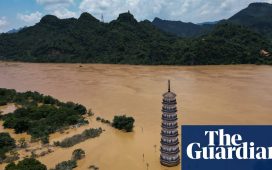October 2022 finally saw the culmination of a 25-year-long wait for Anwar Ibrahim, whose Pakatan Harapan alliance emerged with the most seats in the general election.
Although still short of a simple majority needed to form a government, Malaysia’s king announced him as the 10th Prime Minister of Malaysia or just PMX.
Whether Anwar is the right man for the job remains to be seen, but with the trust placed in him for the next five years or so, he seems to be the only man for the job for now as there is nobody else on the horizon who is ready and capable and who has the right mindset to unite Malaysia and Malaysians.
As he reached the first 100 days of his tenure, it is clear that the road ahead will not be an easy one, and already he has been called out for a few early missteps.
The appointment of Ahmad Zahid Hamidi as his Deputy Prime Minister and second in command despite his ongoing trial for corruption is still scoffed at even from within his own Pakatan Harapan circles, especially when Anwar’s Pakatan Harapan rode on an anti-corruption ticket during the campaigning. The subsequent pro bono appointment of his daughter Nurul Izzah as his senior advisor on economics and finance was roundly slammed by the public, necessitating a swift climbdown after allegations of nepotism made their rounds. Missteps aside, Anwar is still Malaysia’s best bet for a brighter, multi-racial and more prosperous and democratic Malaysia.
Having coined the slogan Malaysia Madani following his appointment, he has set his sights on a robust national philosophy and vision aimed at facilitating progress for the country. The six core values in the framework are based on Sustainability, Prosperity, Innovation, Respect, Trust and Compassion, which not only focuses on the problem-solving process and meeting the current needs of the nation but also on the creation of a peaceful and prosperous future which fulfils the potential of the people and the country. Correspondingly, Malaysia’s way forward will solely depend on the Madani framework and how Anwar navigates Malaysia post-pandemic, amid elevated inflation and declining foreign investment.
His recently tabled, fiscally responsible Budget pushes this agenda forward again.
The Challenges Ahead
The most important challenge that Anwar Ibrahim faces, for now, is the need to strengthen Malaysia’s fiscal position by narrowing the budget deficit and reducing the debt burden. By his own admission, Anwar said in January 2023 that Malaysia’s national debt had already reached RM1.5 trillion (about US350 billion), which has exceeded 80 per cent of the Gross Domestic Product. Malaysia needs a stronger safety net, but funding it will require the government to reduce fiscal leakage by rationalizing subsidies and ensuring that resources and services are well-targeted. It may be very unpopular but necessary, and the earlier Anwar does it during his term the better.
While his re-tabled Budget presented on 24 February is still being sliced and diced, the general sensing is that the Budget is not going to be a major game changer, given the current state of the government’s finances.
Reducing the tax rate for the middle income and helping rebuild savings of the low-income through the state-controlled retirement and investment funds, while placing a heavier tax burden on the wealthy are among the easiest ways to appease the masses, but does it do enough to raise revenue for public expenditure? That is an albatross which is tied around his neck.
Restoring Malaysia’s tarnished integrity, keeping talent in Malaysia
1MDB truly tarnished Malaysia’s international reputation, and this was further exacerbated by the leadership crisis in 2018, where Malaysia had three different Prime Ministers over a span of just three years. Anwar has the unenviable task of having to improve Malaysia’s international standing, and with it Malaysia’s status as a competitive destination for high-value investments. The signs are positive so far. Malaysia’s mature digital ecosystem and infrastructure are the reason that digital and tech companies are landing and expanding in ASEAN, with Malaysia the location of choice.
Malaysia ranked 32nd globally in the International Institute for Management Development (IMD) World Competitiveness Ranking 2022, and this can in part be attributed to the various initiatives implemented by Malaysia Digital, which offers fiscal and non-fiscal initiatives to local and international tech companies, to encourage them to operate, grow, expand or invest anywhere in the country.
Another way to increase private investment into Malaysia would be to aggressively push the Malaysia My 2nd Home (MM2H) policy to foreign investors. By promoting Malaysia as a place to live and invest, there will definitely be a rise in the number of foreign investments coming into the country. However, there is more to just attracting more foreign investment. Anwar’s government must also nurture the investment capacity of Malaysia-owned companies and prevent a brain drain.
The brain drain that Malaysia currently faces could be a potential stumbling block in Anwar’s attempts to boost the Malaysian economy. A report in 2022 by Kuala Lumpur-based independent think tank, EMIR Research, showed that 2 million residents were residing overseas, and out of this, half a million are people above 25 years old, who are more likely to be employed by companies overseas. The government needs to create opportunities to have these Malaysians return.
Winning over the Malay ground
The reality is that Anwar Ibrahim receives a lot of support from the non-Malays. The Democratic Action Party, a member of his Pakatan Harapan government has 40 seats in Parliament while his PKR outfit has 31. The Parti Islam Se-Malaysia (PAS) has 43 seats after it ran the elections along with Bersatu. But is there a threat of Malay nationalism rising with a growing green wave? In my view, the ascend of PAS at the last General Elections was more out of a knee-jerk reaction to the fear-mongering peddled during the hustings. In the states of Perlis and Kedah, it was not so much about the rising green wave but more about the need to keep former Prime Minister Mahathir Mohamad out. In saying that, Anwar does have to win over more Malay votes, and the upcoming State Polls could provide a clearer indicator of where he stands.
Positive Signs
All things being said, Anwar’s new government is ticking all the right boxes for the time being. In a recent survey by the Merdeka Center for Opinion Research, Anwar received a 68% approval rating, while 54% of voters were satisfied with the new government’s performance. This bodes well for Anwar, with the Malaysian public keen to put aside the instability that had mired the previous governments in the past and an opportunity for the new government to prove itself.
The same survey also showed that there has been an increase in the number of people who believe that Malaysia is moving in the right direction under Anwar’s leadership, with a jump from 20% to 48%.
But the road ahead is still one that will be filled with challenges for Anwar. The government will have to consider insurance and financing schemes to reform Malaysia’s healthcare and social protection systems. Political sensitivities will prevent any review of the education system, but a more pluralistic, inclusive Malaysia must be a vision for not just Anwar Ibrahim, but for all future Prime Ministers of Malaysia.
Vijay Eswaran is the founder and executive chairman of the QI Group of Companies, a conglomerate headquartered in Hong Kong that has diverse interests in education, retail, direct selling, real estate, hospitality and luxury products.
Send in your scoops to news@theindependent.sg
– Advertisement –














